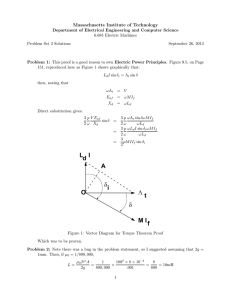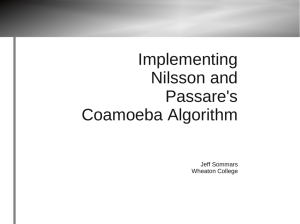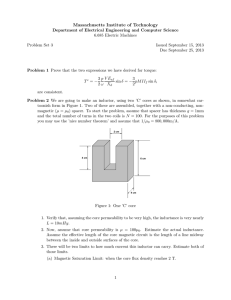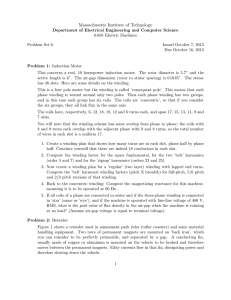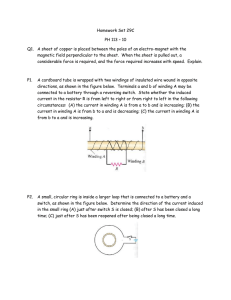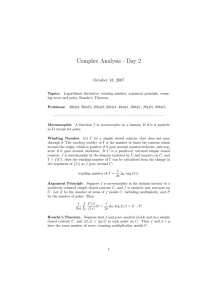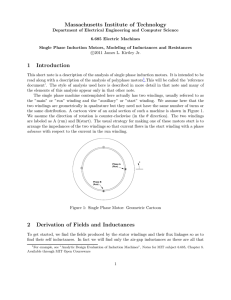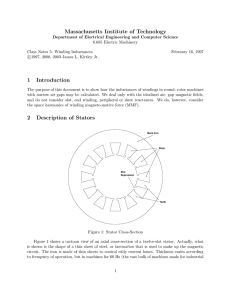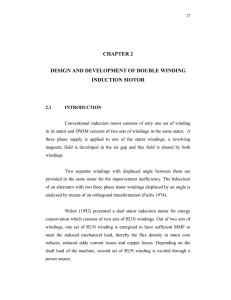Massachusetts Institute of Technology
advertisement
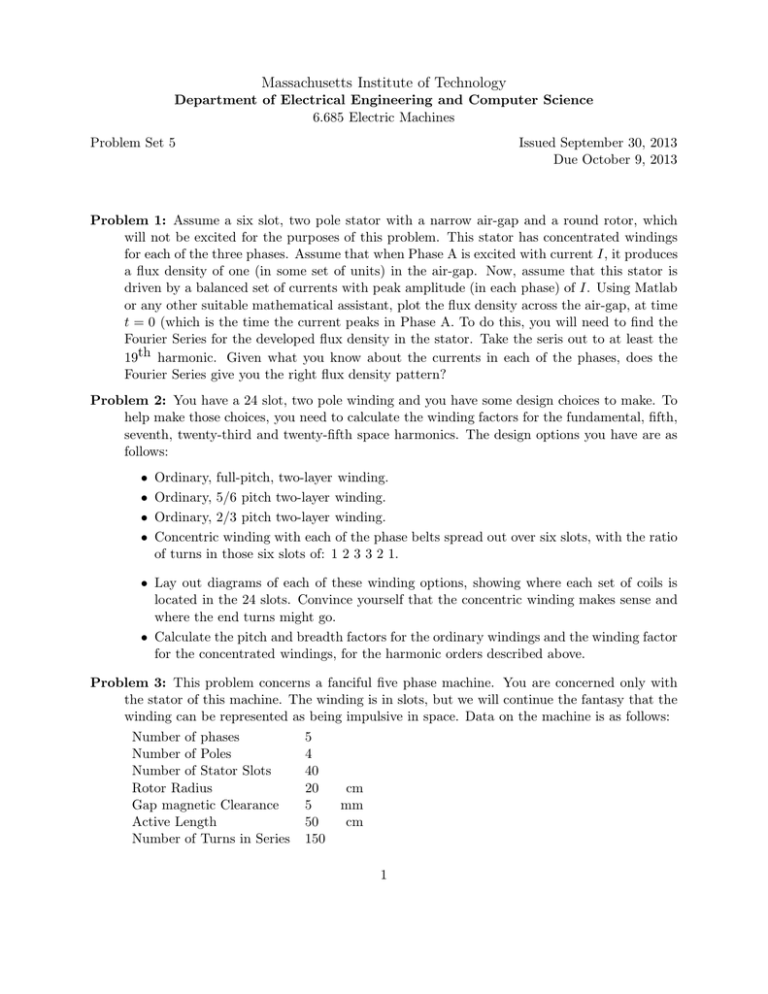
Massachusetts Institute of Technology Department of Electrical Engineering and Computer Science 6.685 Electric Machines Problem Set 5 Issued September 30, 2013 Due October 9, 2013 Problem 1: Assume a six slot, two pole stator with a narrow air-gap and a round rotor, which will not be excited for the purposes of this problem. This stator has concentrated windings for each of the three phases. Assume that when Phase A is excited with current I, it produces a flux density of one (in some set of units) in the air-gap. Now, assume that this stator is driven by a balanced set of currents with peak amplitude (in each phase) of I. Using Matlab or any other suitable mathematical assistant, plot the flux density across the air-gap, at time t = 0 (which is the time the current peaks in Phase A. To do this, you will need to find the Fourier Series for the developed flux density in the stator. Take the seris out to at least the 19th harmonic. Given what you know about the currents in each of the phases, does the Fourier Series give you the right flux density pattern? Problem 2: You have a 24 slot, two pole winding and you have some design choices to make. To help make those choices, you need to calculate the winding factors for the fundamental, fifth, seventh, twenty-third and twenty-fifth space harmonics. The design options you have are as follows: • Ordinary, full-pitch, two-layer winding. • Ordinary, 5/6 pitch two-layer winding. • Ordinary, 2/3 pitch two-layer winding. • Concentric winding with each of the phase belts spread out over six slots, with the ratio of turns in those six slots of: 1 2 3 3 2 1. • Lay out diagrams of each of these winding options, showing where each set of coils is located in the 24 slots. Convince yourself that the concentric winding makes sense and where the end turns might go. • Calculate the pitch and breadth factors for the ordinary windings and the winding factor for the concentrated windings, for the harmonic orders described above. Problem 3: This problem concerns a fanciful five phase machine. You are concerned only with the stator of this machine. The winding is in slots, but we will continue the fantasy that the winding can be represented as being impulsive in space. Data on the machine is as follows: Number of phases 5 Number of Poles 4 Number of Stator Slots 40 Rotor Radius 20 cm Gap magnetic Clearance 5 mm Active Length 50 cm Number of Turns in Series 150 1 All of the turns in each phase are connected in series. The winding is short pitched by 1 slot, and the winding, aside from having five phases, is an ordinary lap winding. 1. What is the ’coil throw’: the number of slot spaces between sides of each coil? 2. Assume the winding is driven by a balanced five phase current source with 50 Amperes (Peak) per phase: • Find the amplitude of the space fundamental flux wave. • Find the amplitudes and direction of rotation of each of the space harmonics through order 41. • Taking t = 0 to be the time when current in phase A is at its positive peak, plot the air-gap flux density as a function of angle. 3. Assuming the amplitude of the space fundamental flux wave (provided by the field winding) is 1.25 T, and that this is a 60 Hz machine, what is the voltage rating of the machine? Phase to neutral and phase to phase. 4. If the rated current of this machine is 100 A (peak), what is the per-unit synchronous reactance of this machine? 2 MIT OpenCourseWare http://ocw.mit.edu 6.685 Electric Machines Fall 2013 For information about citing these materials or our Terms of Use, visit: http://ocw.mit.edu/terms.
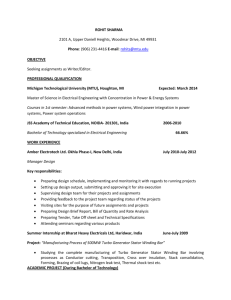
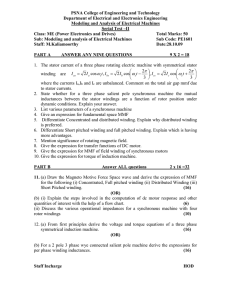
![FORM NO. 157 [See rule 331] COMPANIES ACT. 1956 Members](http://s3.studylib.net/store/data/008659599_1-2c9a22f370f2c285423bce1fc3cf3305-300x300.png)
